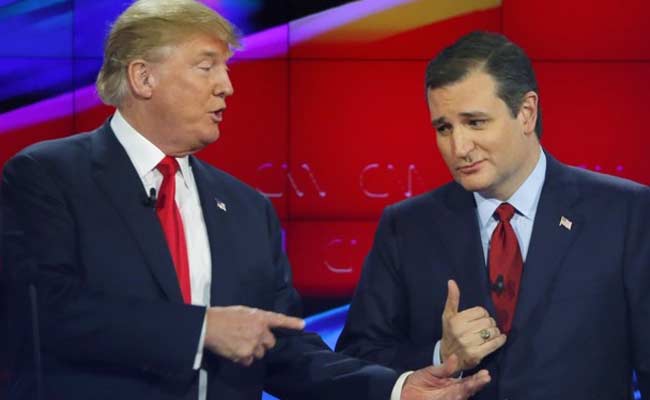
US presidential hopefuls launched a final campaign swing through New York on Monday on the eve of the state's most decisive primary in decades as Hillary Clinton and Donald Trump lead the polls and their rivals fight to catch up.
Registered Democrats and Republicans go to the polls in the country's fourth most populous state Tuesday to elect their nominee for the White House in a fraught race still competitive on both sides.
It shines an unprecedented spotlight on the overwhelmingly blue state, which normally has little sway in presidential campaigns, in a year when three of the candidates -- Manhattan billionaire Trump, former senator Clinton and Brooklyn-born Sanders -- can each claim New York as home.
The former secretary of state is steeling herself for a big win, determined to quash the momentum generated by her self-styled Democratic socialist rival who has won seven out of the last eight primary and caucus votes.
On Monday she was to campaign with New York senator Kirsten Gillibrand and former Arizona congresswoman Gabby Giffords, who survived being shot in the head, on issues of women's rights and raising incomes.
The Democratic establishment has swung behind the former first lady. She is endorsed by the New York mayor and on Monday the state governor will join former president Bill Clinton in hitting the phones upstate.
While nationwide polls edge Clinton just 47-46 per cent over the 74-year-old Sanders, in New York she leads by a whopping 53.7-40.9 per cent, based on a RealClearPolitics poll average.
"The margin will probably be a little tighter than people might expect, but we think we're going to pull this out and that is going to be a very meaningful victory," Clinton's campaign press secretary Brian Fallon told CNN.
Clinton holds 1,790 delegates compared to 1,113 for Sanders, putting her on course to scoop the 2,383 needed to secure the party's ticket for the White House, where she last lived as first lady from 1993-2001.
With 247 Democratic delegates up for grabs in New York, including 44 super-delegates, Sanders desperately needs a win in the state of his birth to keep alive his hopes of winning the presidency.
On the Republican side, a somewhat toned-down Trump hopes that winning the majority of the 95 Republican delegates can lessen his chances of facing a contested nomination at the party convention in Cleveland in July.
Two-way street
Republican voters in rural upstate areas and fallen manufacturing cities have warmed to his populist message despite a growing backlash among party elites opposed to his decisive campaign that has insulted women, Mexicans and Muslims.
On Monday evening he is to lead a campaign rally in Buffalo, New York's second largest city and part of the upstate belt.

Donald Trump has blasted Republican party rules as "rigged" as he has lost a string of recent delegate hauls to right-wing evangelical Ted Cruz. (Reuters file photo)
"Lyin' Ted Cruz can't win with the voters so he has to sell himself to the bosses -- I am millions of VOTES ahead!" Trump tweeted on Monday.
Trump has blasted Republican party rules as "rigged" as he has lost a string of recent delegate hauls to right-wing evangelical Cruz.
Cruz, who is widely disliked in New York for insulting its "values" earlier in the campaign, is to spend Monday at a rally in Maryland, sandwiched by private meetings and television appearances.
Sanders, who on Sunday addressed what he said were 20,000 supporters in Brooklyn's Prospect Park, has another rally scheduled in Queens on Monday.
The Vermont senator has galvanized millions with his call for universal health care, free public college and campaign finance reform, exhorting youth voters and working people to get more involved in politics.
But he suffers a major disadvantage in New York, where Tuesday's voting is closed to independents, many of whom have swung behind his message.
"If voter turnout is high, working people come out to vote, young people come out to vote, we can win this thing," he told CNN.
But he signalled that he could be willing to swing behind Clinton, should she win the nomination, provided she take on causes that he has highlighted.
He said Clinton had "moved to the left in this campaign" but not gone far enough to propose solutions.
"It's a two-way street," he said. "The Clinton people are also going to have to listen to what these people are fighting for. And the Clinton people are going to have to say, you know, maybe Bernie has a point," he said.
Track Latest News Live on NDTV.com and get news updates from India and around the world

